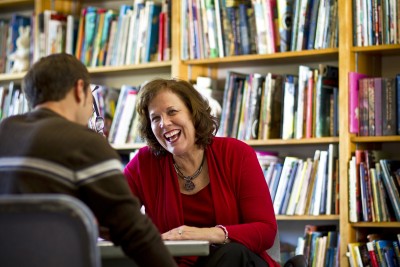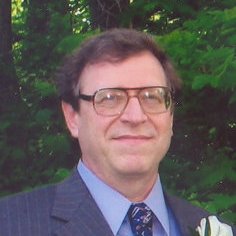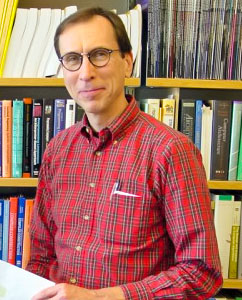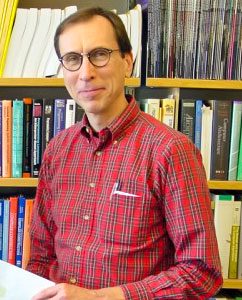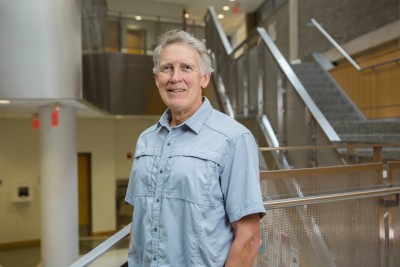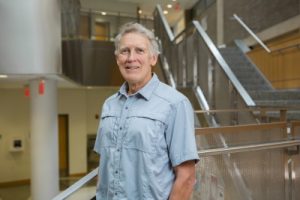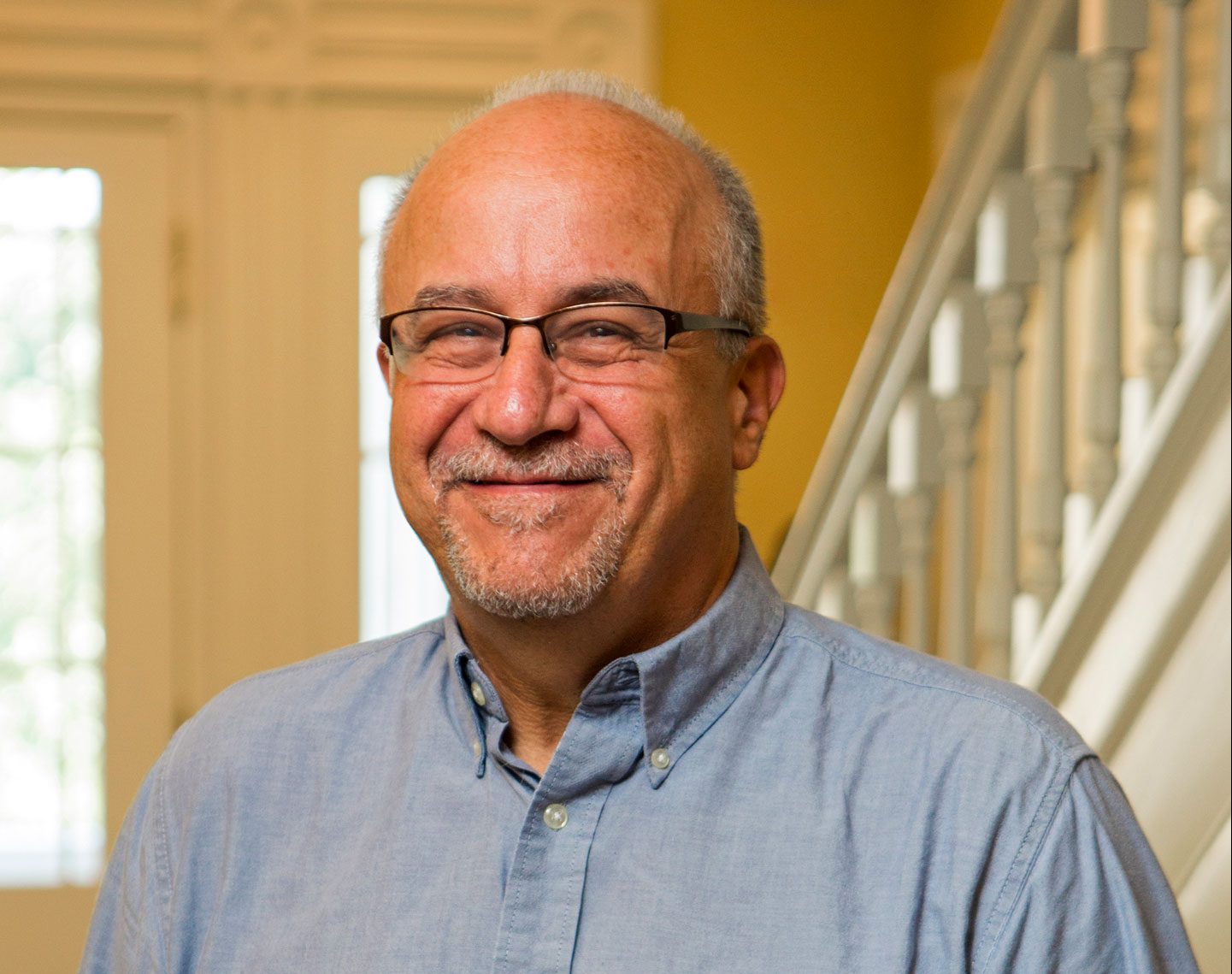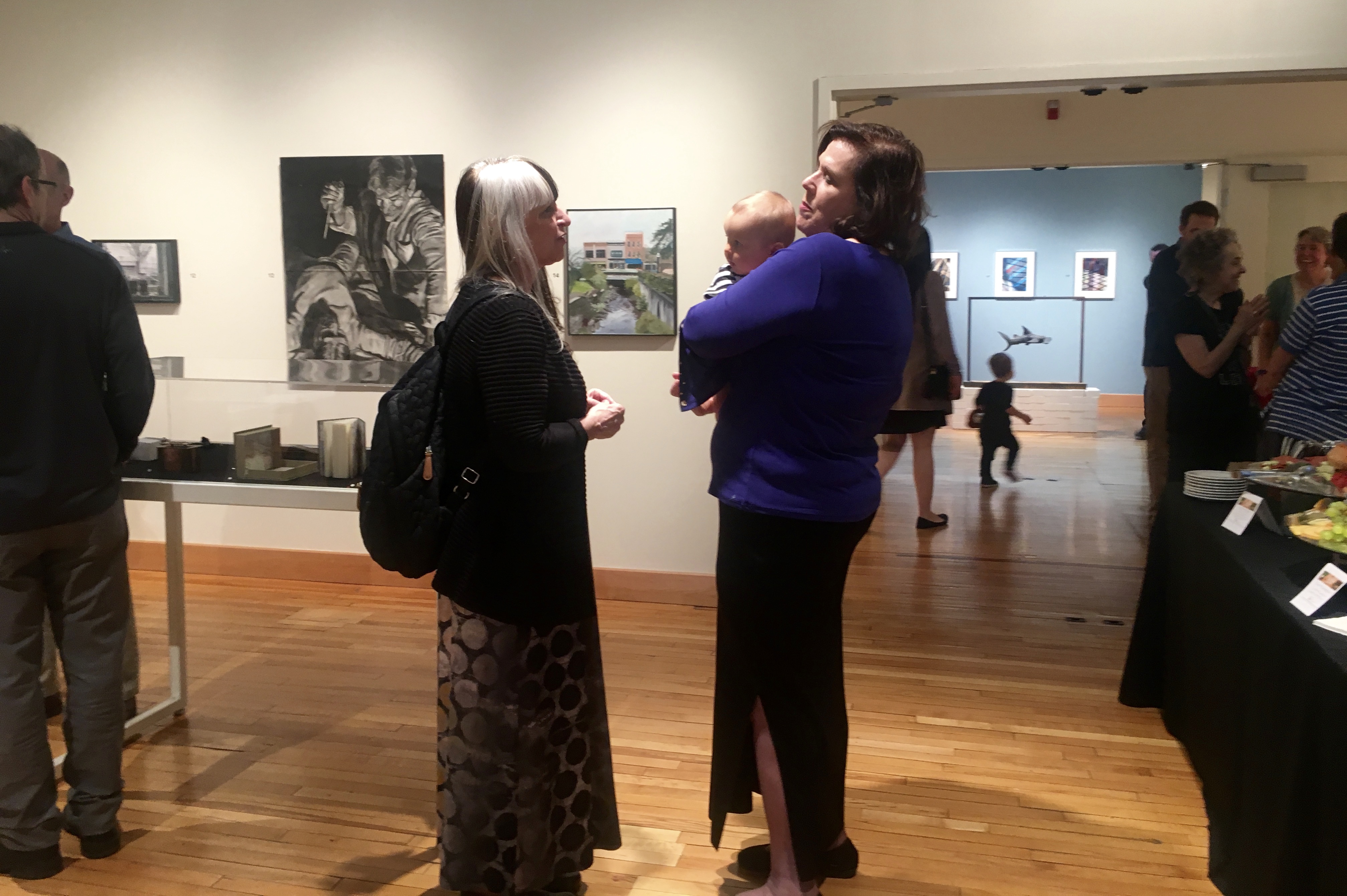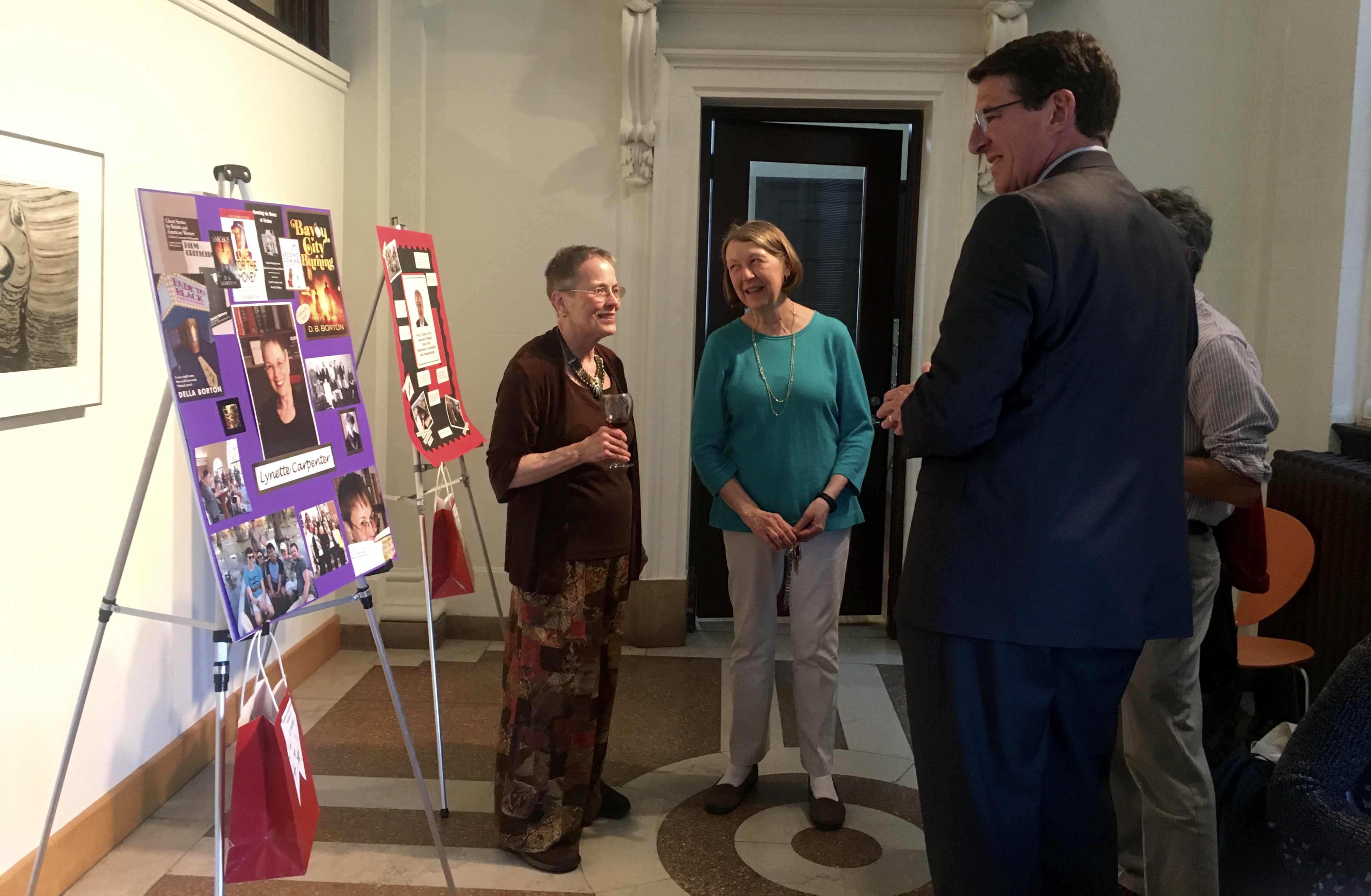Dr. Amy McClure, Rodefer Professor of Education, has served the Ohio Wesleyan faculty for 40 years. Books have been a constant in Dr. McClure’s life. As a child in Coral Gables, Florida, she was reprimanded for staying up too late reading under the covers with a flashlight, and she and her sister organized their books into a lending library for other neighborhood children.
She attended Ohio Wesleyan as an undergraduate, where she was a history major and honors student. She was elected to Phi Beta Kappa, Mortar Board (leadership honorary), Phi Alpha Theta (history honorary), and served as president of Panhellenic Council. At Ohio Wesleyan, she fell in love with economics major and future OWU part-time instructor Rusty McClure. They met when Amy’s pledge class visited the Delta Tau Delta house freshman year. A mosaic heart on Delt house floor commemorates the exact spot where Amy and Rusty met 50 years ago.
After earning her Master of Arts in Teaching at Emory University, Dr. McClure began her professional career teaching elementary students in all grades and serving as a reading specialist in Lynnfield, Massachusetts; Atlanta, Georgia; and London, Ohio. During this time, she earned the Martha Holden Jennings Award for Outstanding Classroom Teaching and the Outstanding Young Career Woman award from Business and Professional Women.
Dr. McClure went on to earn her Master of Arts in Reading and her Ph.D. in Children’s Literature from The Ohio State University, where her dissertation on children’s responses to poetry earned the National Dissertation of the Year award from both Kappa Delta Pi and the National Council of Teachers of English. As a graduate student, she studied school desegregation, children’s intellectual freedom, children’s theoretical understandings of poetry, and other topics related to children’s literature and reading development.
Dr. McClure joined Ohio Wesleyan in 1979 as a part-time faculty member and was made tenure-track in 1981. Her first term as department chair started just three years later, and she has served as chair for 15 of her 40 years, leading the department through its first national accreditation review.
She has served the University as co-director of the Honors Program for over 30 years, creating a Student Honors Board, initiating an Honors center, and facilitating an Honors Program redesign in 2018-2019. She has taught multiple honors courses and tutorials, including War and Peace in Children’s Literature and The Roots of Fantasy in Children’s Literature, and supervised multiple independent studies and Departmental Honors projects.
She has served on almost every faculty governance committee, and chaired the Faculty Personnel and Academic Status committees. Dr. McClure has been honored for her contributions to Ohio Wesleyan as a recipient of the Bishop Herbert Welch Meritorious Teaching Award, Robert K. Marshall Award (outstanding campus service by faculty), Spirit of Arête Award (Panhellenic Council award), and Ohio Council of Teachers of English Language Arts College Professor of the Year. She received a Scholarly Leave grant and numerous other grants to support her research. However, her most cherished joy has been nurturing OWU students to become excellent literacy teachers and enthusiastic book lovers.
Dr. McClure’s contributions extend well beyond campus. She is the past-president of the Ohio Association of Colleges for Teacher Education, the Ohio Association of Private Colleges of Teacher Education, the National Children’s Literature Assembly, the Children’s Literature SIG of the International Reading Association, and the Ohio Council of the International Reading Association. She has chaired multiple committees for national literacy organizations, and was elected as a member of the 2013 Newbery Award Committee.
Over the course of her career, she has served as an editor or on the editorial board for seven publications, published seven books on children’s literature including Sunrises and Songs: Reading and Writing Poetry in an Elementary Classroom and Teaching Children’s Literature in an Era of Standards, and authored more than 40 articles and book chapters. She serves on the Board of Directors for KIPP Academy, and A Good Start School, a summer literacy partnership program for underserved children entering kindergarten.
Amy and Rusty are parents to Haileigh McClure Roby and Kaci McClure Roby, and doting grandparents to Nash and Knox, with another grandchild due in November.
